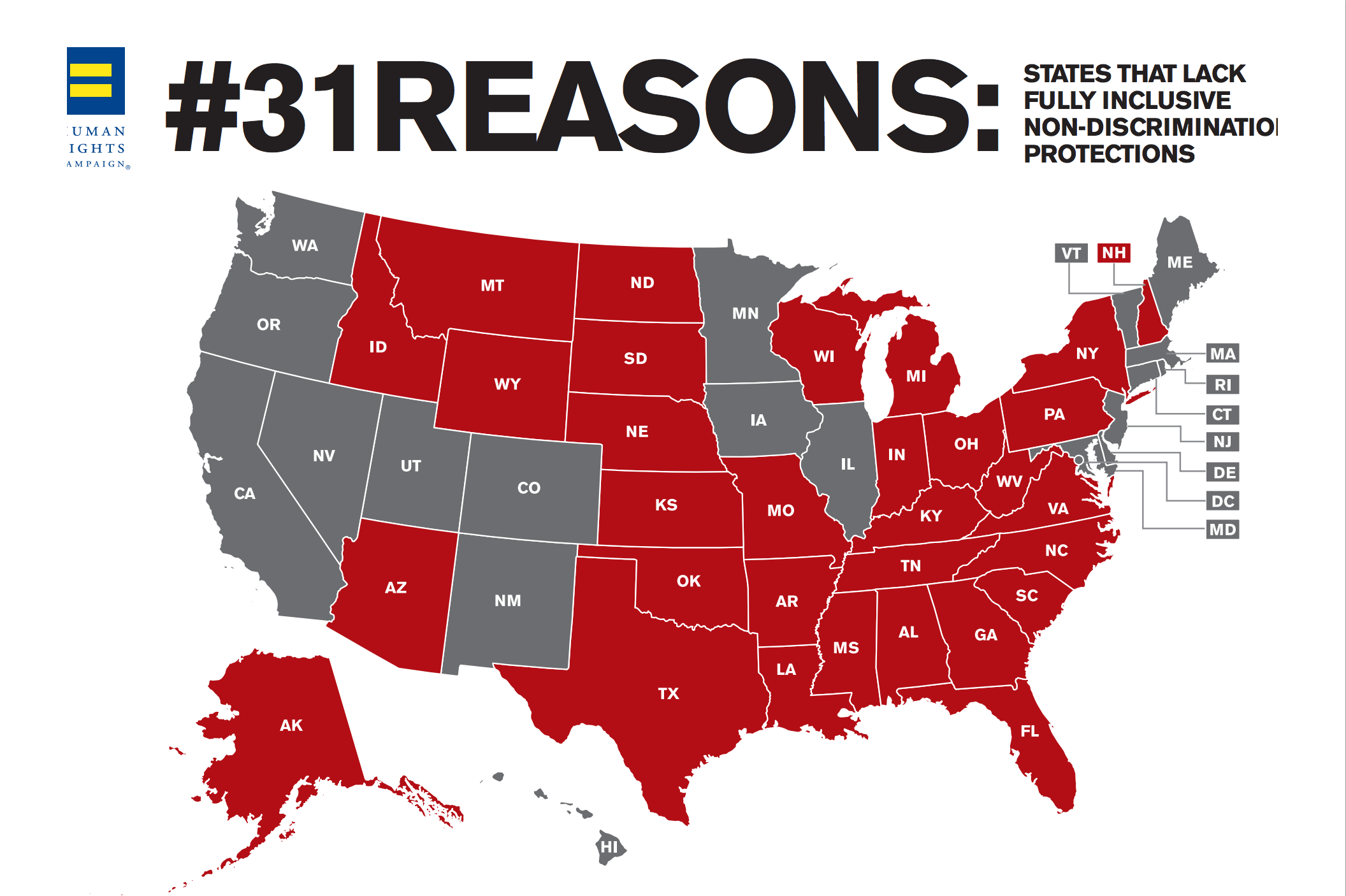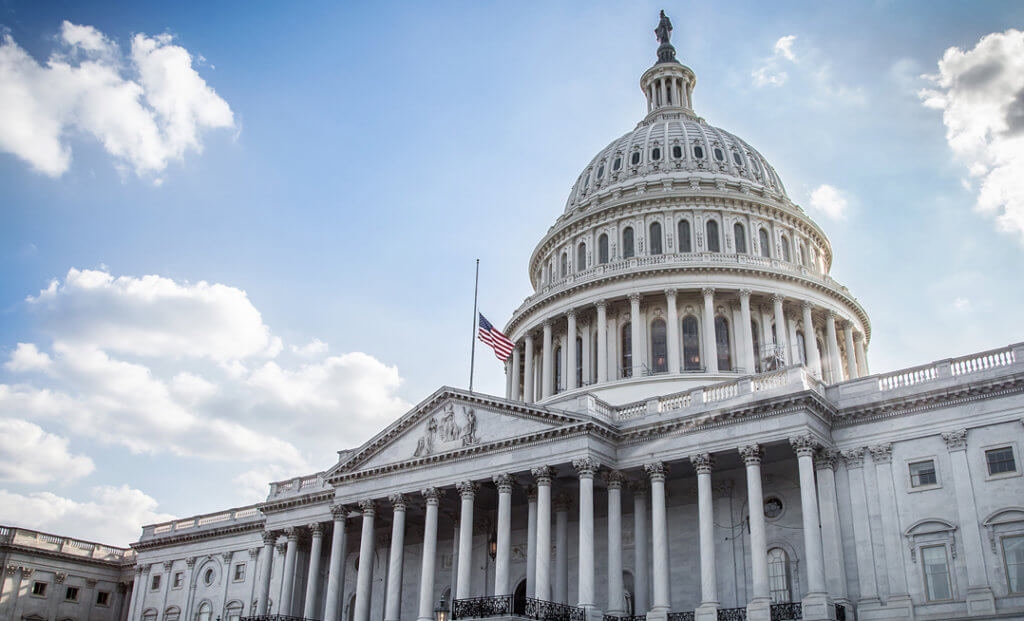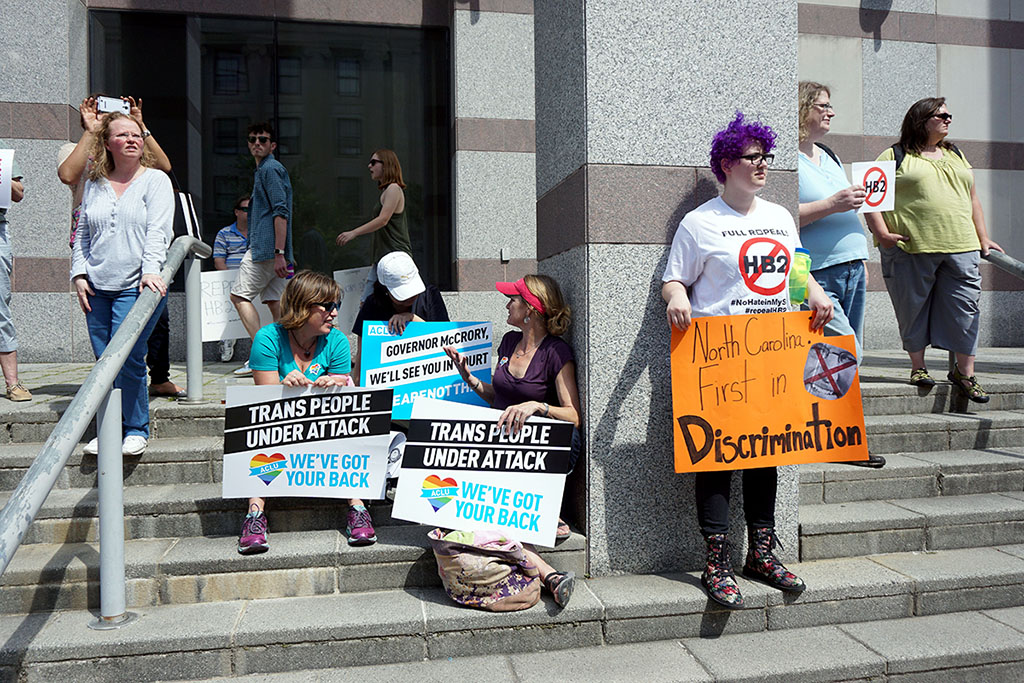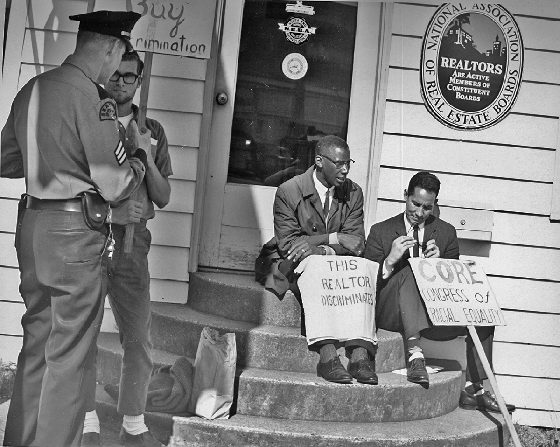The “Equality Act” Offers a Path Toward Eliminating LGBT Discrimination
Last month, the country took an important step toward guaranteeing equality for LGBT Americans when the Supreme Court ruled in favor of same-sex marriage. With varying levels of enthusiasm, all states are acknowledging that marriage equality is now the law of the land. However, same-sex couples are not out of the woods yet when it comes to discrimination. In more than half of all states, an LGBT person who simply tells a coworker about his or her nuptials could be given a pink slip for no other reason than their sexual orientation.
Although many Americans assume that workers cannot be fired for identifying as LGBT, the fact is that in 29 states, laws banning discrimination in the workplace, as well as in housing and public accommodations, do not protect people based on their sexual orientation or gender identity. Workers can be fired simply for being gay. In a move that we hope will address this problem, the U.S. Equal Employment Opportunity Commission ruled earlier this month that Title VII of the 1964 Civil Rights Act bans workplace discrimination based on sexual orientation. However, as we’ve seen in the past, the courts frequently disagree, and this decision only protects against anti-LGBT discrimination at work.
Keep up with the latest from UnidosUS
Sign up for the weekly UnidosUS Action Network newsletter delivered every Thursday.
Thankfully, we have at our fingertips the permanent solution we need. Last week, Democrats in both chambers of Congress introduced the “Equality Act,” robust antidiscrimination legislation designed to protect the LGBT community not just in the workplace, but also in housing, education, public accommodations, and federal programs. The bill would amend the Civil Rights Act of 1964 and the Fair Housing Act to include sexual orientation and gender identity as protected classes and will prevent individuals from using the Religious Freedom Restoration Act to legally discriminate against the LGBT community.
The decision for our lawmakers is simple. Acceptance of the LGBT community is well beyond the tipping point in this country. According to a poll released earlier this year by the Human Rights Campaign, almost 70 percent of likely voters support a federal nondiscrimination law. Another poll released earlier this month found that nearly 60 percent of small business owners across the political and religious spectrum oppose laws allowing individuals, associations, or businesses to legally refuse service to anyone based on religious beliefs.
In a relatively short amount of time this country has made dramatic progress toward equality for LGBT individuals, yet discrimination persists. To root out inequality and discrimination, our lawmakers must take a proactive approach to protecting our most vulnerable communities. We hope that Congress will capitalize on the promise of the “Equality Act” to make our country safer and more equal for LGBT Americans, including our Hispanic LGBT brothers and sisters.




